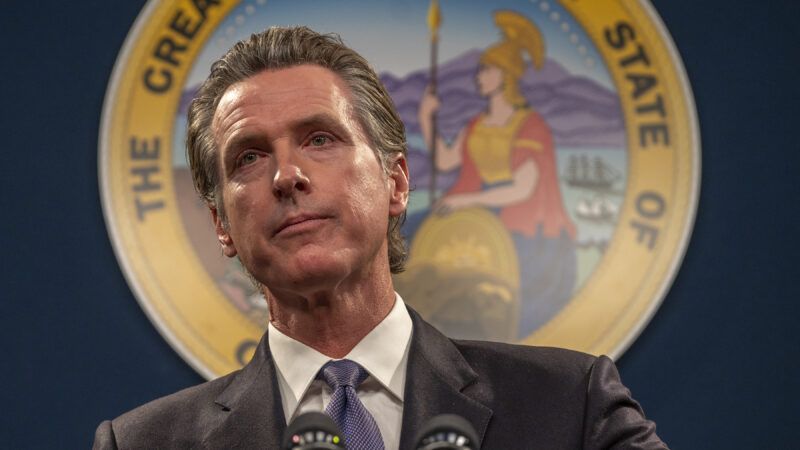NetChoice Seeks Injunction Against California's Disastrous Internet Law
The trade association says the overbroad and vague A.B. 2273 places unconstitutional burdens on speech.

NetChoice, a trade association that represents tech firms, has sued to block California's Age-Appropriate Design Code Act (A.B. 2273), the state's hamfisted attempt to protect children online. As NetChoice writes in a request for a preliminary injunction filed last month, the law violates the Constitution by "enact[ing] a system of prior restraint over protected speech using undefined, vague terms, and creat[ing] a regime of proxy censorship, forcing online services to restrict speech in ways the State could never do directly."
The law will require any business (as defined by California statute) offering online services "likely to be accessed by children" to "[e]stimate the age of child users with a reasonable level of certainty appropriate to the risks that arise from the data management practices of the business or apply the privacy and data protections afforded to children to all consumers" (emphasis added). In other words, if a company cannot erect obstacles for children users specifically, it must create obstacles for all users.
Such child-specific protections include pre-configuring settings to maximize privacy and refraining from collecting, maintaining, or selling nonessential data. Moreover, before offering a new online service likely to be accessed by children, businesses must investigate and detail how it could cause children harm. Like many other broad terms, the law leaves "harm" undefined. "[B]ecause it rests on standards and phrases that are impermissibly vague," the law is "invalid," according to NetChoice.
NetChoice posits that A.B. 2273 "places the burden on all online providers to configure their services in a child-friendly way, rather than empower specific households with the controls and information they need to make content and privacy decisions for their children." The association argues that "[s]uch a medium-focused approach is inherently overbroad, particularly given that there are no minors in nearly two-thirds of California households."
Moreover, the plaintiff notes, "Its application to any online feature 'likely' to be accessed by anyone under 18, and its presumption that users are minors unless proven otherwise, mean that virtually all content—including blogs, book groups, and encyclopedias used mostly by and intended for adults—is subject to the law."
The law will require that businesses strictly adhere to their stated content-moderation policies, which, by nixing discretionary enforcement, amounts to "proxy censorship." This provision "forces services to err on the side of caution by blocking content that some (but not others) might consider problematic—such as by enforcing prohibitions on categories like 'hateful,' 'objectionable,' or 'respectful' content," NetChoice argues. Further, by effectively requiring online platforms to impose universal age verification or to subject all users to a sanitized, modified-for-kids version of the internet, the association says the bill impermissibly burdens speech.
The law wilts before the dual prongs of strict scrutiny, a legal test applied often to statutes that implicate fundamental rights such as freedom of speech. First, to prove a compelling government interest, the government must identify concrete harms or risks. California failed to do so, NetChoice contends. "The State must 'prove the existence of a problem' before burdening speech and provide 'a more careful assessment and characterization of an evil' it seeks to avert 'to justify' its 'sweeping' regulation," the filing says. Second, the government must show that the policy is narrowly tailored to achieve its goal. The broad and vague A.B. 2273 manifestly fails here also.
"[S]elf-censorship is AB 2273's self-professed aim: It expressly declares that providers should tailor their online expression to 'the best interests' and 'well-being of children,'" the plaintiffs conclude.
Gov. Gavin Newsom's California—in some ways the blue-tinted mirror image of Ron DeSantis' Florida—seems determined to micromanage the internet to assuage progressives' anxieties. Such interventions in markets and free expression are magnets for unintended consequences and rarely end well.


Show Comments (25)